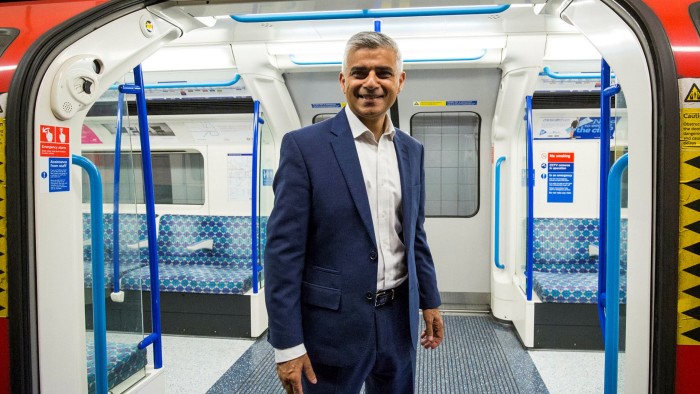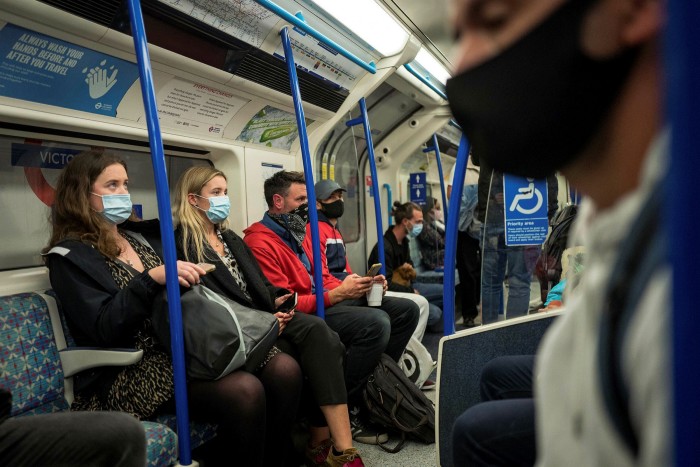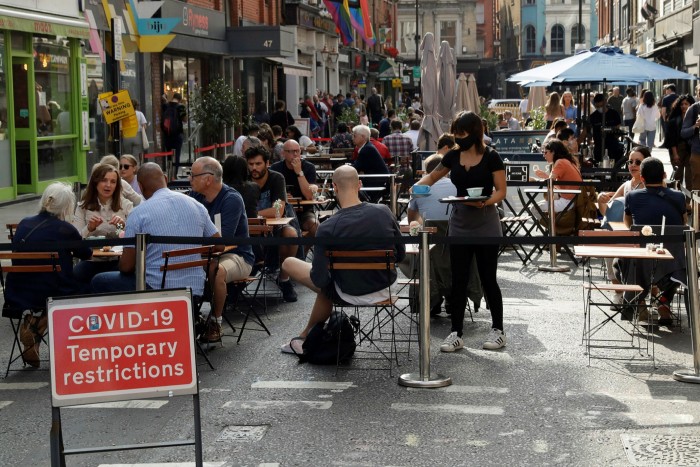Sadiq Khan sets out £5.7bn TfL rescue plan for London

Roula Khalaf, Editor of the FT, selects her favourite stories in this weekly newsletter.
Sadiq Khan has called for a £5.7bn bailout of London’s transport system in a submission to the Treasury that lays bare the damage the coronavirus emergency measures have inflicted on the network.
In the mayor’s official submission to the government’s spending review as chairman of Transport for London, Mr Khan said the funds were needed to keep the system going for the next 18 months. A similar package was struck a week ago for the national railway system.
Meanwhile, Mr Khan, who is a member of the opposition Labour party, has accused the government of cutting London out of some of its recent spending announcements as it focuses on “levelling up” the regions.
Senior Conservatives indicated that the government was likely to approve most of the money demanded by TfL but it could come with strings attached.
Under a £1.6bn bailout in May aimed at tiding TfL over until mid-October, Mr Khan was forced to agree to increase fares and the congestion charge and give two seats on its board to senior Tories.

The submission from Mr Khan said the capital’s public transport network would need “at least” £5.65bn over the next 18 months because measures imposed to try to control the pandemic would continue to suppress passenger numbers. The figure includes £750m to cover further extra costs of completing the delayed east-west Elizabeth line.
The submission argued that the cut in central government grants to TfL in recent years has made it more reliant on fares than any other big transport authority in the world. It said income from ticket sales had fallen “around 90 per cent as a result of lockdown, and will be nowhere near returning to normal levels as long as social-distancing measures are in place”.
However, the government has argued that TfL’s finances were in a precarious position before the pandemic, partly because of big cost overruns and delays on the Elizabeth line and because Mr Khan decided to freeze most Tube fares for several years when he took over as mayor in 2016. But the mayor insisted that TfL had been on track to return to the black within a few years when the virus struck.
Separately he called for an “urgent” new package of financial support for retail, hospitality, leisure and cultural sectors hit hardest by the pandemic.

Mr Khan criticised what he claimed was the government’s approach to exclude London from many recent spending announcements.
For example, last month ministers announced £900m in new investment for 300 ‘shovel-ready’ projects in new housing and infrastructure across England — but the capital only received £22m of this.
Mr Khan complained that London has been shut out of an array of funding streams, including an £880m National Clean Air Fund, a £2.5bn “Transforming Cities” pot and a £250m Culture Investment Fund.
The debate about whether to shift spending away from London intensified today with the publication of a report on closing the north-south divide by the UK2070 Commission of business groups, universities and think-tanks.
The group, chaired by former civil service chief Bob Kerslake, said the pandemic had hit the most deprived areas hardest and widened inequality in the developed world’s most unbalanced economy.
It called for a £375bn ‘New Deal’ recovery strategy over 25 years to “level up”, with most of the money spent outside London.
“If you don’t rebalance, everybody loses. London loses because it has to take too much of the burden of the growth and its infrastructure struggles to cope,” Lord Kerslake said. “You get more pollution, higher house prices, more commuter problems.”
Before the pandemic London’s economic output per head was 70 per cent above the national average and more than twice that of Wales, Britain’s poorest region.
Comments